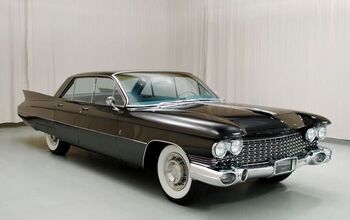Question of the Day: Motorists' Democracy Inaction?
A bit of a philosophical one for you today. With the (not quite) shocking revelation that whoops London's congestion charge will in fact increase CO2 emissions, and that Mayor Ken Livingstone's administration buried the report, I've been thinking. Who the hell put the politicians in charge? As Woody Allen said, they're just one wrung above child molesters. And he would know. Another example of political grandstanding trumping logic is Bremen enacting a speed limit on a formerly derestriced prt of the Autobahn to (maybe) reduce CO2 emissions by fiver percent. In both examples, motorists' rights were thrown under the [slowly moving] bus for the sake of political expediency. And just to be my own Devil's advocate, during a recent conversation with my London cousin about "Red Ken's" congestion charge, he said he loved it. True, he decided to sell his dirty old Saab, but he says the streets are much calmer and that the city is better off because of the charge. So the question is: can any politician be trusted to get anything car-related right?

































Comments
Join the conversation
Several interesting points: edgett: Certainly, but the object of getting people to stop and think about the amount of lost time sitting in traffic seems a worthwhile objective. Geeber: But what makes you think that they aren’t thinking about this already? This idea was put forward with respect to safety in the workplace; that people would make appropriate choices and thus intervention by government or industry was unnecessary. The fact is that some percentage of people make smart choices (ie: to work safely or to limit their commute, or means of commute, as a means of getting more utilization from the same infrastructure), but most do not until they recognize costs. I met a man several years ago who had a 4-6 hour daily commute and hated the time away from his family. When asked why he put up with it, he believed that he could make up to 20% more in the city and was thus forced to commute. I pointed out that he might find a lower paying job where he could work more hours locally and thus save both the time and cost of the commute. He seemed dumbstruck that the math worked out. Just because people keep doing things like sitting in traffic out of habit does not mean that they have thought about other options. If we change the economics, this creates a new condition that they must then reexamin habitual behavior. This happened during the both gas crunches in the 70's, when people realized they could plan their travel and actually learn to live without the Buick Electra they habitually bought while visiting the gas station less frequently. Nudges in this direction do not necessarily increase government waste. On the issue of fast vehicles, the object wasn't to single out young drivers, but to suggest that automotive safety can be enhanced by requiring training of people based on the type of vehicle they are going to drive. If one learns to drive and even learns accident avoidance in a Ford Escort, this does not qualify them to deal with similar conditions in a Ford Expedition or a 435 hp base Corvette. A pilot cannot learn to fly a single engine plane and then move automatically into four-engine transport aircraft (and Geeber, this does relate to individual "choice" relative to air safety), so why do we not qualify people to drive cars which have vastly different capabilities with respect to handling and speed? The absurd example of a new-to-motorcycling rider ripping out of the Kawasaki dealership aboard a 180 mph missile really does represent a significant part of motorcycle fatalities, and does not apply only to young riders. The range of automobiles available today is extraordinary and worthy of our respect. But even given my track experience in a BMW 3-series doesn't suggest to me that I would be a "safe" driver in a Corvette Z06 or ZR1, and certainly has virtually no bearing on my ability to drive a 6000 lb SUV.